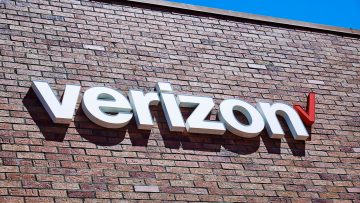When Hewlett-Packard announced in April of 2010 that it planned to acquire Palm for $1.2 billion, I sent the following email to a friend on the software team at Palm: “Congrats on the stay of execution, buddy. I give it 18 months.” Of course I was jabbing him and later went on to offer more sincere congratulations in subsequent emails, but as they say, many a word of truth is spoken in jest. Here we are less than 16 short months after HP’s announcement, and webOS is no more. Well, to be fair, HP hasn’t yet said exactly what it will do with webOS: “HP reported that it plans to announce that it will discontinue operations for webOS devices, specifically the TouchPad and webOS phones. HP will continue to explore options to optimize the value of webOS software going forward.” Read on for my thoughts.
As someone who has been a fairly vocal fan of webOS since it was unveiled at CES in 2009, I’m hurting right now. I’ll admit it. I have several friends who moved over to HP from Palm following the acquisition, and I’m hurting for them. Whether or not their jobs may be in jeopardy, I don’t know. Luckily, each one is brilliant and I am supremely confident that they will land in even better roles should they leave HP on their own or due to layoffs. I’m hurting because webOS was their baby, and when HP — the world’s No. 1 PC vendor — swooped in and purchased Palm, the sky was the limit. New phones… New tablets… WebOS on desktop computers and notebooks… It was the dawn of the webOS era. But no longer.
I’m also hurting because I truly did enjoy using webOS. As I’ve said in the past, iOS revolutionized the smartphone OS by placing apps at the center of the user experience. WebOS took this concept a step further by placing the task manager, or the apps that are currently in use, at the center of the user experience. Palm’s card system was brilliant, and it changed the way people accessed commonly used apps. WebOS was also gorgeous to look at, and with the right hardware — I was lucky enough to spend a few weeks with the Pre3 recently — it’s also remarkably fluid. I am truly going to miss it.
In the end, however, I think the real reason I’m hurting boils down to a single, ultimate truth: HP was right to kill off webOS.
Sad though it may be, webOS never stood a chance. The Pre’s unveiling was immediately eclipsed by the iPhone 3G, and by the time HP got to it, it was far too late. Now, there are four: Apple’s iOS, Google’s Android, RIM’s BlackBerry OS and Microsoft’s Windows Phone. Symbian is dead, webOS is dead and the rest are fighting a losing battle, it would seem. Aside from GridOS, of course.
Apple and Google are the clear leaders right now, but each faces challenges. RIM is on the ropes, though a massive 225-carrier BlackBerry 7 launch appears likely to carry the wounded vendor forward as it prepares its first wave of next-generation QNX-powered smartphones. Microsoft stumbled out of the gate with Windows Phone, but it found itself an ideal partner in Nokia and both companies are hungry to attack the market beginning later this year. It really is anyone’s game, and though Apple’s iOS currently owns the lion’s share of smartphone profits and Google’s Android currently owns the lion’s share of smartphone sales, no one knows what the future might hold.
After all, nothing lasts forever… Just ask Palm.




